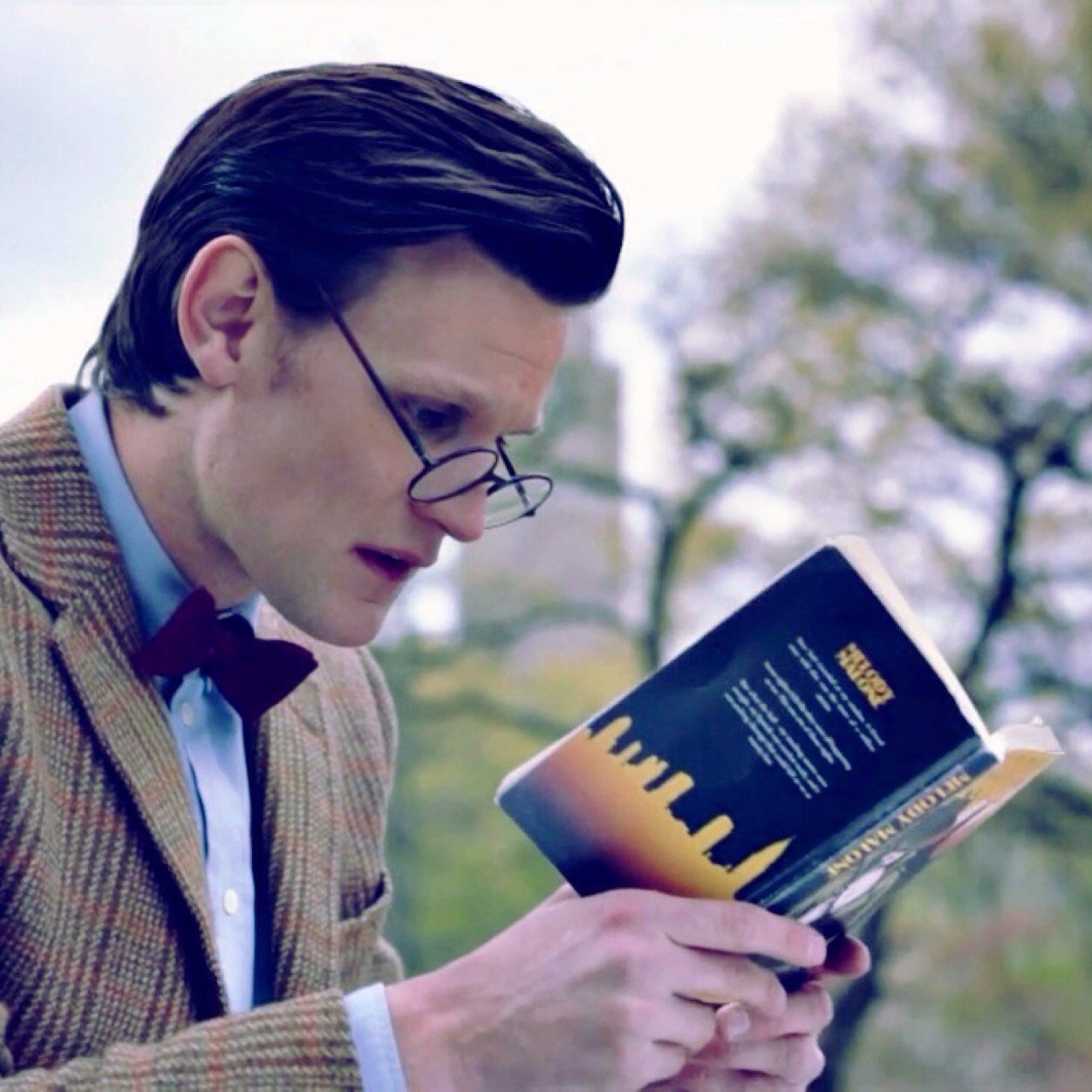For those who follow me on Twitter, it’s obvious that I’m a big Doctor Who fan. To be totally upfront about things, my Whovian status is a relatively recent development. I can’t claim to be a truly hardcore Whovian with a history of watching the show dating back to childhood. We started watching a year or so ago on Netflix but got into the show enough to actually buy Season 7 on iTunes rather than wait for those episodes to become available. Now, we’re eagerly awaiting next season’s 12th doctor with Peter Capaldi (while re-watching most of the Matt Smith and David Tennant episodes). Yes, I’m definitely a fan. In fact, my entire family is a little obsessed. But you might be wondering what any of this has to do with my writing or my books. A fair question…
Well, there are certain elements of Doctor Who that greatly appealed to me right from the start. For example, those of you who’ve read my first YA novel, Jump When Ready, know that despite it being a fairly short novel (around 260 pages) it still deals with a number of weighty issues such as life, death, the afterlife and, of course, reincarnation. No one on Doctor Who (to the best of my knowledge) ever references reincarnation directly but the concept is certainly represented with the idea that the doctor regenerates every so often. Sure, this keeps giving the show itself a reboot but for the character there’s the idea that he both lives many lives but never actually himself survives regeneration. No doctor is the same as the last one but just in a new body. Not at all, which is why David Tennant’s final, simple statement as the Tenth Doctor—“I don’t want to go”—was perhaps so poignant for the audience.
Tennant’s doctor knew that, while he was about to live again, he was also about to die. His consciousness would, in some form, live on but not as the same consciousness presently aware of its own existence. This opens a pretty vast philosophical question I’m not about to go into here but it’s one that intrigues me. Honestly, I’m not morbid but I do often wonder what might happen to a person’s consciousness after he or she dies. Some of those who’ve read Jump When Ready have asked me if I believe in reincarnation (strangely, still a pretty uncommon believe here in the west). Well, some days I do. I mean, it makes as much sense as anything that our energy would be recycled as part of some cosmic soup—that a consciousness might remain a consciousness at least in some way. Just not necessarily the same consciousness (much like Matt Smith’s consciousness as the Eleventh Doctor is both the same and a different consciousness from that of David Tennant’s Tenth Doctor). I’m not sure if reincarnation might take the form as portrayed in Jump When Ready (although who’s to say if it might not?) but the idea is one I enjoyed knocking around while writing that novel and am again enjoying while writing the sequel (coming soon, by the way).
My new novel, Streetlights Like Fireworks, explores the possibility of psychic awareness as the main character, Jack, grapples with whether to pursue or ignore the “flashes” that keep assailing him. Not surprisingly, we see the theme of psychic awareness popping up in Doctor Who from time to time as well. First, there is the interconnectedness of the Ood to point out here. There’s also the “Fires of Pompeii” episode, which features soothsayers of the “Sibylline Sisterhood” as well as the psychic teenager (by the way, did you know that this episode features Karen Gillan before she became Amy Pond, not to mention Peter Capaldi?). There’s also the psychic “conference call” in the Name of the Doctor episode (great episode; wished that one was longer). My favorite Doctor Who psychic episode features Vincent Van Gogh as he’s tortured by dreams of the future destruction of the TARDIS, causing him to reach out through time to warn the doctor of his haunting visions (the “Van Gogh” painting of the TARDIS bursting into flame is especially cool).
As an aside, one could also argue that the doctor is a fantastic role model, with his message of nonviolence and acceptance reflecting the show’s underlying philosophy of embracing cultural diversity (as well as sexual orientation) without judgment. I like to think that the better characters in my fiction also reflect this same view (maybe more evident in my new novel, Streetlights Like Fireworks, but definitely sprinkled throughout Jump When Ready too).
Now, that I’ve published my first two YA novels—one about the afterlife and the other about teenage psychics—it has occurred to me that people may wonder if I’m a little on the “woo-woo” side of things. Not really, not in the way you might think. I’m just your basic guy—a husband and father, a writer—who finds these paranormal elements intriguing to work with when constructing a fictional world. Which is not to say I’m not open-minded about things. I am. And always curious. Which makes me happy that my curiosity led me to discovering Doctor Who. Such a cool show. And, by the way, there’s just a touch of time travel in the sequel to Jump When Ready. I just couldn’t resist.


Recent Comments